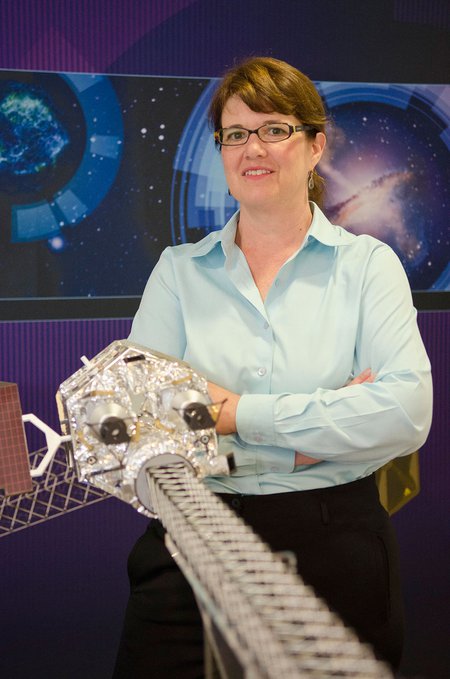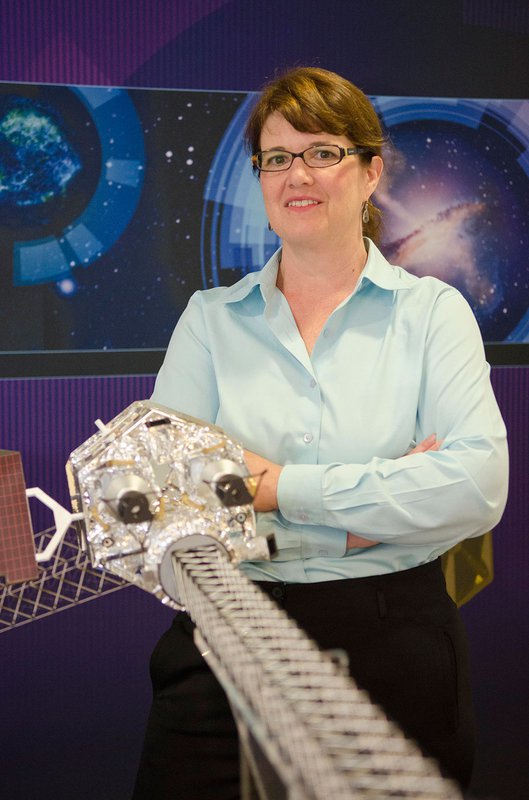The 2015 Rossi Prize has been awarded to Fiona Harrison, the Benjamin M. Rosen Professor of Physics at Caltech, for her "groundbreaking work on supernova remnants, neutron stars, and black holes enabled by NuSTAR." The award is the top prize in high-energy astrophysics.
Harrison is the principal investigator of NASA's NuSTAR (Nuclear Spectroscopic Telescope Array) mission. The telescope, launched in June 2012 under NASA's Small Explorer program, is the most powerful high-energy X-ray telescope ever developed. By focusing high-energy X-rays, NuSTAR is able to study some of the hottest, densest, and most energetic phenomena in the universe, including black holes, collapsed stars, and supernovae remnants. NuSTAR is conducting a census of the black holes in our cosmic neighborhood, examining the origins of high-energy particles in active galaxies, and mapping the remains of supernovae to better understand how stars explode and chemical elements are formed.
The citation for the Rossi Prize notes that Harrison's "assembly and leadership of the extraordinary NuSTAR team has opened a new window on the Universe."
"The exciting scientific results from NuSTAR are the culmination of close to two decades of work by a talented and dedicated team," says Harrison. "It is a privilege to work with them, and an honor to be recognized through the Rossi Prize."
Harrison came to Caltech as a research fellow in 1993 after earning her PhD in physics at UC Berkeley. She joined the faculty at Caltech in 1995 and was named the Benjamin M. Rosen Professor in 2013. Harrison is a member of the National Academy of Sciences and a fellow of the American Academy of Arts and Sciences and the American Physical Society. In 2013, she won a NASA Outstanding Public Leadership Medal, and she was recently elected as an Honorary Fellow of the Royal Astronomical Society.
The AAS High Energy Astrophysics Division awards the Rossi Prize annually in honor of physicist Bruno Rossi, an authority on cosmic-ray physics and a pioneer in the field of X-ray astronomy. It recognizes significant contributions to high-energy astrophysics, with particular emphasis on recent, original work. Harrison will accept the award and present a plenary lecture at the 227th annual meeting of the American Astronomical Society, which will be held in Kissimmee, Florida, in January 2016.
 Fiona A. Harrison, Benjamin M. Rosen Professor of Physics at Caltech.
Credit: Lance Hayashida
Fiona A. Harrison, Benjamin M. Rosen Professor of Physics at Caltech.
Credit: Lance Hayashida

